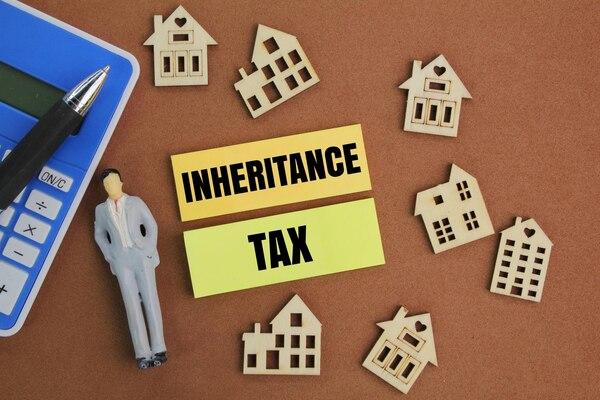How to Plan Your Estate to Minimize Inheritance Tax Liability for Your Heirs

Contemplating future arrangements is inherently challenging, particularly regarding the transfer of one’s estate to beneficiaries. Inheritance tax in the UK can substantially diminish the bequest received by heirs, with rates reaching up to 40% on amounts over the threshold. Nevertheless, through meticulous planning, you can reduce your inheritance tax liability, so maximising the benefits for your family from your estate. This article outlines the fundamental steps to mitigate the tax liability for your beneficiaries.
What Constitutes Inheritance Tax Liability?
Inheritance tax liability denotes the need to remit tax on the value of an estate bequeathed by a deceased individual. Inheritance tax in the UK is imposed when the entire estate value surpasses a specified threshold, currently established at £325,000 (as of 2024). Any amount beyond this threshold is subject to a 40% tax rate. However, some exceptions and allowances may mitigate this obligation.
If you bequeath your estate to your spouse or civil partner, they are exempt from inheritance obligation. Furthermore, bequeathing your residence to your children or grandchildren allows you to take advantage of the Residence Nil-Rate Band (RNRB), which increases your tax threshold by an additional tax-free sum of up to £175,000. Comprehending the mechanics of tax obligation is essential for estate planning, as it directly influences the amount inherited by your beneficiaries.
Strategies for Legally Minimizing Tax Obligations
Numerous legal strategies exist to mitigate inheritance tax liability in the UK, many of which need meticulous planning and the prompt allocation of assets. Here are several essential techniques to reduce your heirs’ tax liability.
1. Making Gifts During Lifetime
A straightforward method to diminish your estate’s value and, consequently, the tax burden on your heirs is to transfer money or assets while you are still alive. The United Kingdom permits individuals to donate up to £3,000 per year as tax-exempt gifts. These gifts are instantly free from inheritance tax and can substantially diminish your wealth over time.
Larger contributions may remain exempt from taxation if you survive for seven years following the gift’s issuance. This principle is referred to as the seven-year rule. Gifts conferred within three to seven years before death may incur taxation on a sliding scale, referred to as taper relief, which progressively diminishes the tax liability based on the duration of survival following the gift’s issuance.
2. Using Trusts to Protect Assets
Trusts can effectively regulate the distribution of your assets while simultaneously minimizing inheritance tax liability. Assets placed in a trust are excluded from your estate, so they are exempted from inheritance fee. This is especially advantageous if you have certain preferences for the timing and manner in which your heirs get specific assets, such as real estate or investments.
Various types of trusts exist, and selecting the appropriate one for your circumstances is crucial. A Discretionary Trust allows for control over asset distribution, but a Bare Trust guarantees that beneficiaries receive the assets outright upon reaching a specified age. Establishing a trust can be intricate and may incur initial expenses; nevertheless, the potential long-term tax benefits might be significant.
3. Utilizing the Residence Nil-Rate Band
The Residence Nil-Rate Band (RNRB) is a supplementary tax-exempt allowance applicable when bequeathing your primary residence to your immediate heirs, including children or grandchildren. In 2024, this allowance is £175,000, allowing you to transfer up to £500,000 of your estate without incurring tax, provided you account for both the regular tax threshold and the RNRB.
Nevertheless, the RNRB begins to diminish if your estate exceeds £2 million. Hence, cautious planning is essential if your assets are above this threshold. Effectively organising your estate can optimise the utilisation of this allowance and diminish the total inheritance tax liability for your beneficiaries.

The Importance of Reviewing and Updating Your Will
A legitimate and well-structured will is an effective means to minimise tax liabilities and guarantee the distribution of your wealth aligns with your intentions. A will enables you to delineate the distribution of your assets and can facilitate the utilisation of tax allowances and exemptions. In the absence of a will, your estate will be allocated in accordance with the rules of intestacy, potentially conflicting with your wishes and leading to increased tax obligations.
Regularly reviewing your will is essential, particularly following significant life events such as childbirth, marriage, or the acquisition of substantial assets. Inheritance fee regulations may evolve, making it imperative to revise your will to maintain the tax efficiency of your estate.
A crucial factor is the selection of a dependable and informed executor. The executor will oversee the administration of your estate and ensure compliance with all tax requirements. Selecting an individual knowledgeable in the intricacies of inheritance tax can prevent expensive errors and delays in the allocation of your wealth.
How Life Insurance Can Help Cover Inheritance Obligations
Life insurance can serve a significant function in estate planning by supplying funds to address any tax obligations your beneficiaries may have. Should you foresee a substantial tax liability for your estate, a life insurance policy can guarantee that your beneficiaries will not need to liquidate assets, such as real estate or investments, to settle the tax obligation.
To ensure the policy effectively mitigates inheritance fees, it is essential to establish it under a trust. When the policy is maintained in trust, the disbursement is directed to your beneficiaries and is excluded from your inheritance for taxation purposes. This guarantees that the funds are accessible to settle the tax obligation without augmenting the value of your taxable estate.

Consulting with Tax Advisors to Minimise Risk
Estate planning and reducing tax liabilities can be intricate, making it advantageous to seek guidance from a tax counsellor or estate planning expert. They can assist you in understanding the intricacies of UK tax legislation and pinpoint ways to alleviate the tax liability for your beneficiaries.
A professional can also help you circumvent frequent errors, such as neglecting to update your will or disregarding provisions like the RNRB. Engaging with a specialist guarantees that your estate plan is customised to your unique circumstances and optimised for tax efficiency.
Conclusion
Reducing the inheritance fee burden necessitates strategic planning and a comprehensive awareness of the various choices. Utilising tax-exempt donations, establishing trusts, optimising the Residence Nil-Rate Band, and maintaining an updated will can substantially diminish the tax liability of your heirs. Life insurance can offer reassurance by covering tax bills without diminishing your legacy. The cornerstone of effective estate planning is initiating the process promptly and obtaining expert counsel. By using these measures, you can guarantee that your beneficiaries receive a greater portion of your accumulated assets while safeguarding your estate from excessive tax liabilities.
Also Visit Techydaily.co.uk



